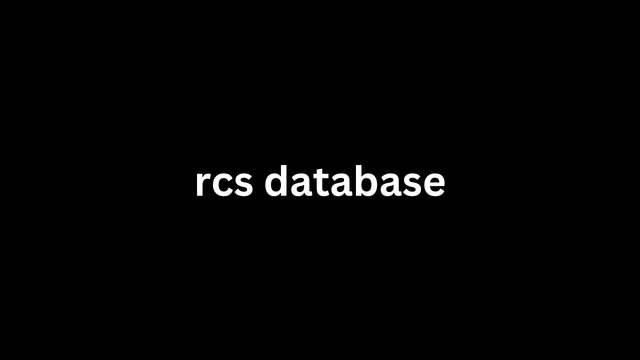These include backlinks
Posted: Wed Dec 04, 2024 8:11 am
Using keywords in the helps search engines understand the page’s content and improves visibility. Internal Linking: Internal links connect different pages within your website. This not only helps with navigation but also allows search engines to crawl your site more effectively. Internal linking also distributes link equity across your website, boosting the authority of less prominent pages. Mobile Optimization: With the increasing use of mobile devices to browse the web, optimizing your website for mobile is critical for both user experience and SEO.
A responsive, mobile-friendly design ensures that your site rcs database can accommodate the growing number of mobile users. Page Speed: The speed at which your website loads significantly impacts user experience and SEO rankings. Slow-loading pages can lead to high bounce rates and lower search engine rankings. For scalable models, ensuring that your website can handle high traffic volumes without compromising performance is crucial. Off-Page SEO: Building Authority and Trust While on-page SEO is essential for technical optimization, off-page SEO focuses on improving your website’s authority and trustworthiness through external factors.

These include backlinks, social signals, and brand mentions across the web. Backlinks are links from other websites to your content. When reputable websites link to your digital model, it signals to search engines that your content is trustworthy and valuable, helping to improve your website’s domain authority and search engine ranking. High-quality backlinks can be earned through content marketing, guest blogging, influencer collaborations, or by providing resources that others find valuable enough to link to. For scalable digital models, link building becomes a critical component of SEO, as a solid backlink profile can dramatically improve search visibility.
A responsive, mobile-friendly design ensures that your site rcs database can accommodate the growing number of mobile users. Page Speed: The speed at which your website loads significantly impacts user experience and SEO rankings. Slow-loading pages can lead to high bounce rates and lower search engine rankings. For scalable models, ensuring that your website can handle high traffic volumes without compromising performance is crucial. Off-Page SEO: Building Authority and Trust While on-page SEO is essential for technical optimization, off-page SEO focuses on improving your website’s authority and trustworthiness through external factors.

These include backlinks, social signals, and brand mentions across the web. Backlinks are links from other websites to your content. When reputable websites link to your digital model, it signals to search engines that your content is trustworthy and valuable, helping to improve your website’s domain authority and search engine ranking. High-quality backlinks can be earned through content marketing, guest blogging, influencer collaborations, or by providing resources that others find valuable enough to link to. For scalable digital models, link building becomes a critical component of SEO, as a solid backlink profile can dramatically improve search visibility.